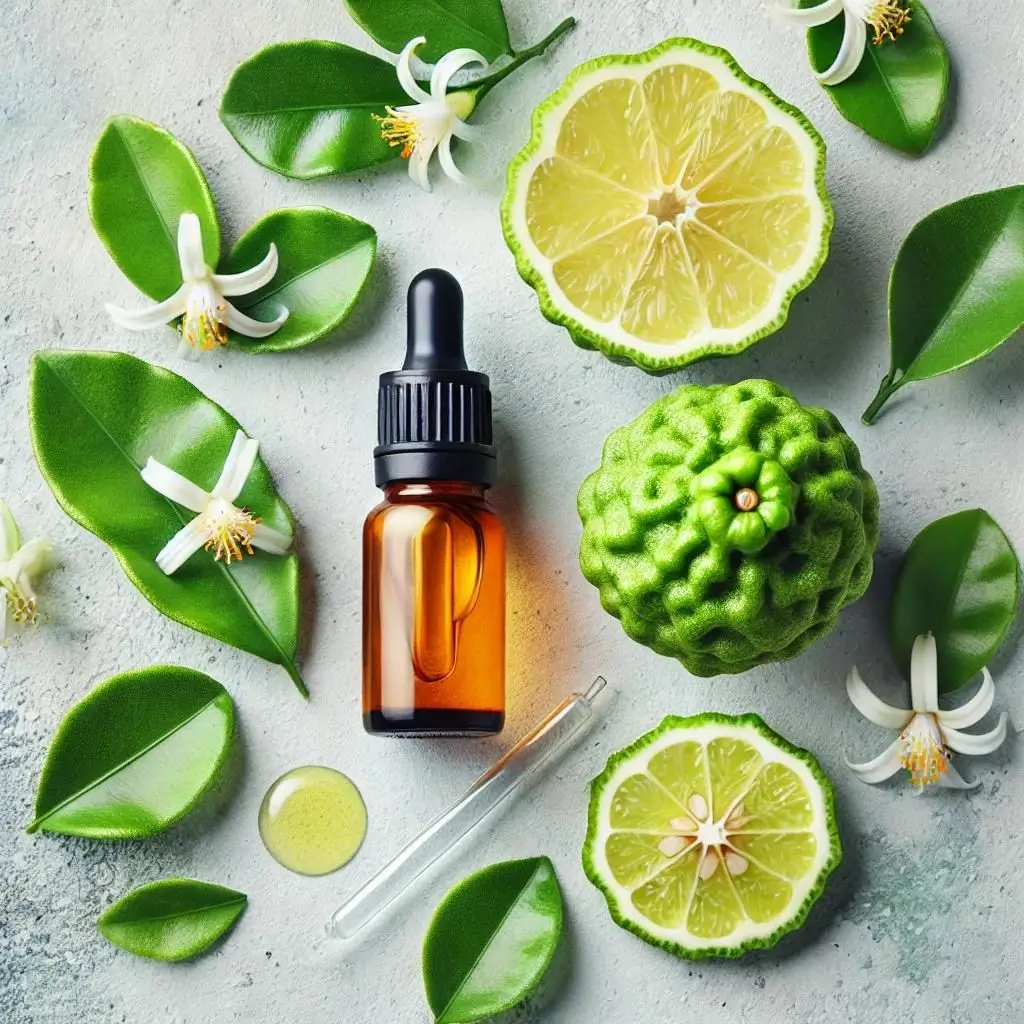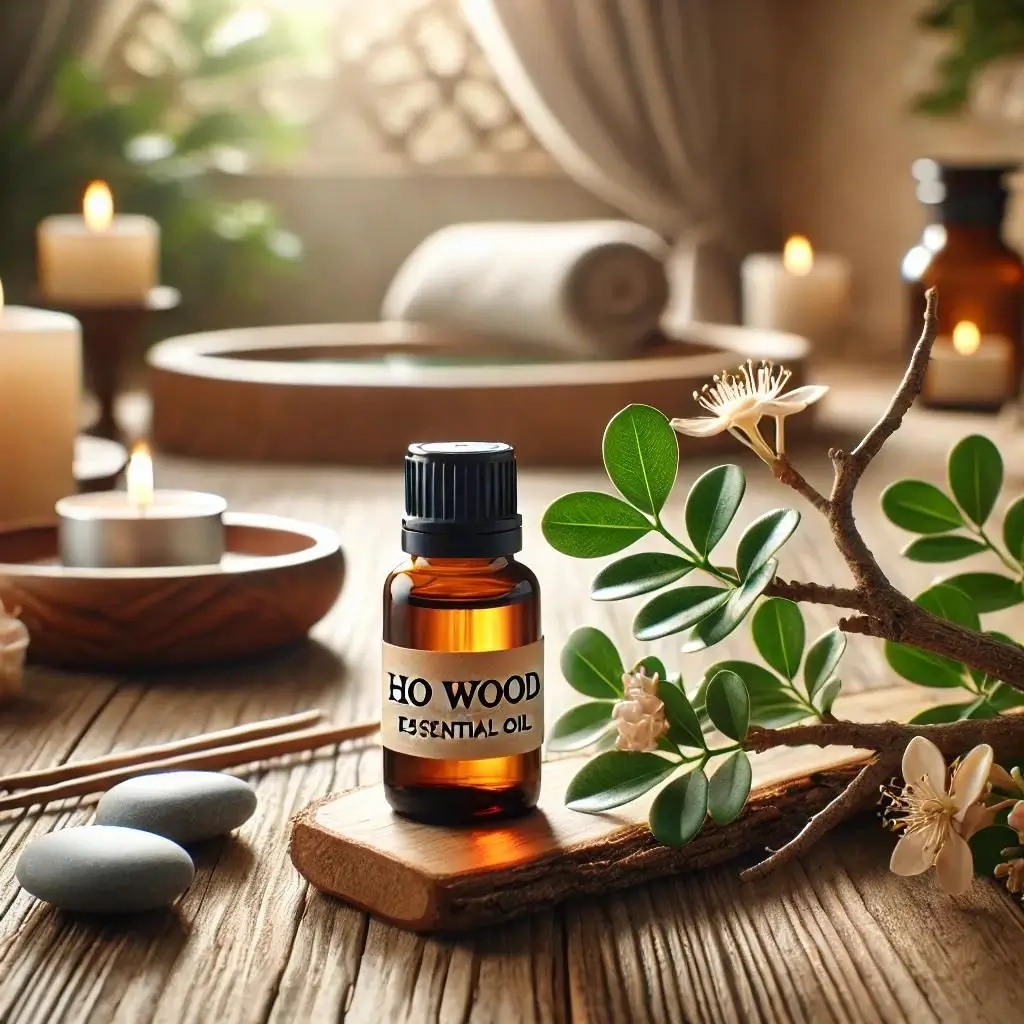Bergamot essential oil, derived from the peel of the bergamot orange (Citrus bergamia), is known for its uplifting and calming scent. With a rich history in traditional medicine and perfumery, this oil offers a plethora of benefits. Its unique composition includes linalool and linalyl acetate, making it a versatile addition to your essential oil collection. This guide explores the myriad benefits of bergamot essential oil, including its impact on mental well-being, skin health, and overall vitality.
What are the primary benefits of bergamot essential oil?
Bergamot essential oil is celebrated for its wide range of benefits, from mental health support to skin care. Here are some primary advantages:
- Stress and Anxiety Relief: Its soothing scent can help alleviate stress and anxiety.
- Skin Health: It has antiseptic and antibacterial properties, making it great for acne and skin infections.
- Mood Enhancement: Known for its uplifting properties, it can help improve mood and energy levels.
- Digestive Aid: It may assist in relieving digestive issues such as bloating and indigestion.
- Antimicrobial Properties: Effective against certain bacteria and fungi, it can help in disinfecting and cleaning.
- Pain Relief: It can reduce pain and inflammation when applied topically.
- Sleep Aid: Its calming effects can promote better sleep.
- Immune System Support: Helps boost the immune system due to its antiviral properties.
- Respiratory Health: Can assist in alleviating symptoms of respiratory conditions.
- Hair Care: It can promote a healthy scalp and hair.

How does bergamot essential oil help with stress and anxiety?
Bergamot essential oil is widely used in aromatherapy to combat stress and anxiety. Here’s how it works:
- Aromatherapy: Inhaling bergamot oil stimulates the production of serotonin and dopamine, neurotransmitters that enhance mood and relaxation.
- Massage: Diluting bergamot oil with a carrier oil and massaging it onto the skin can promote relaxation and reduce tension.
- Bath: Adding a few drops of bergamot oil to a warm bath can create a spa-like experience, soothing the mind and body.
- Diffusion: Using an essential oil diffuser to spread bergamot oil in the air can create a calming atmosphere at home or work.
- Inhalation: Direct inhalation from the bottle or from a cotton ball can provide immediate relief in stressful situations.
- Blends: Combining bergamot oil with other calming oils like lavender or chamomile can enhance its stress-relieving effects.
- Rollerball Application: Applying a pre-diluted bergamot essential oil rollerball to pulse points can offer on-the-go stress relief.
- Mindfulness Practices: Incorporating bergamot oil into meditation or yoga can deepen the relaxation experience.
- Emotional Balance: Regular use can help balance emotions and reduce feelings of overwhelm.
- Sleep: Improved sleep from using bergamot oil can also contribute to reduced stress and anxiety.
| Method | How to Use |
|---|---|
| Aromatherapy | Inhale directly or use a diffuser |
| Massage | Dilute with carrier oil and apply to skin |
| Bath | Add a few drops to warm bathwater |
| Diffusion | Use a diffuser to disperse oil in the air |
| Inhalation | Inhale directly from bottle or cotton ball |
| Blends | Mix with other essential oils like lavender or chamomile |
| Rollerball | Apply pre-diluted oil to pulse points |
| Mindfulness | Use during meditation or yoga |
| Emotional Balance | Regular use for emotional stability |
| Sleep | Improve sleep quality to reduce stress and anxiety |
Can bergamot essential oil improve skin health?
Bergamot essential oil offers numerous benefits for skin health due to its antiseptic, antibacterial, and anti-inflammatory properties. Here’s how it can enhance your skin care routine:
- Acne Treatment: Its antibacterial properties can help reduce acne-causing bacteria on the skin.
- Wound Healing: Promotes faster healing of minor cuts and wounds.
- Scars and Marks: Can help lighten scars and blemishes over time.
- Oily Skin: Regulates sebum production, making it beneficial for oily skin.
- Skin Infections: Its antiseptic nature can help treat minor skin infections.
- Anti-inflammatory: Reduces redness and inflammation associated with skin conditions like eczema and psoriasis.
- Antioxidant: Protects the skin from free radical damage, reducing signs of aging.
- Tone and Texture: Helps even out skin tone and improves texture.
- Aromatherapy for Skin: The calming scent can reduce stress-related skin issues.
- Bath Additive: Adding a few drops to bathwater can benefit overall skin health.
| Skin Issue | How Bergamot Helps |
|---|---|
| Acne | Reduces bacteria and inflammation |
| Wound Healing | Promotes faster healing of cuts and wounds |
| Scars and Marks | Lightens scars and blemishes |
| Oily Skin | Regulates sebum production |
| Skin Infections | Treats minor infections |
| Anti-inflammatory | Reduces redness and inflammation |
| Antioxidant | Protects from free radical damage |
| Tone and Texture | Evens out skin tone and improves texture |
| Stress-Related Issues | Calming scent reduces stress-related skin problems |
| Overall Skin Health | Bath additive for comprehensive skin benefits |
Is bergamot essential oil effective for digestive issues?
Bergamot essential oil can be a natural remedy for various digestive problems. Its carminative and antispasmodic properties make it effective for:
- Indigestion Relief: Helps soothe the digestive tract, reducing discomfort.
- Bloating and Gas: Eases the release of gas and reduces bloating.
- Nausea: Its pleasant aroma can help alleviate feelings of nausea.
- Colic: Can be used to relieve symptoms of colic in infants when used appropriately.
- Appetite Stimulant: Enhances appetite, making it beneficial for those with poor appetite.
- Digestive Spasms: Reduces spasms in the gut, providing relief from cramps.
- IBS: Can help manage symptoms of Irritable Bowel Syndrome (IBS).
- Digestive Health: Promotes overall digestive health when used regularly.
- Detoxification: Aids in the detoxification of the digestive system.
- Liver Health: Supports liver function and health.
How can bergamot essential oil boost mood and energy levels?
Bergamot essential oil is renowned for its ability to uplift mood and boost energy. Here’s how:
- Aromatherapy: Inhaling bergamot oil can stimulate the production of dopamine and serotonin, which enhance mood and energy.
- Massage: Topical application through massage can invigorate the body and mind.
- Diffusion: Using a diffuser to spread bergamot oil can create an energizing atmosphere.
- Inhalation: Directly inhaling bergamot oil can provide an immediate energy boost.
- Blends: Combining with other citrus oils like lemon or orange can amplify the energizing effects.
- Bath: Adding bergamot oil to a bath can revitalize the body.
- Mindfulness: Using bergamot oil during meditation or yoga can enhance focus and energy.
- Topical Application: Applying diluted bergamot oil to pulse points can sustain energy throughout the day.
- Daily Routine: Integrating bergamot oil into your daily routine can help maintain a consistent energy level.
- Work Environment: Diffusing bergamot oil in your workspace can improve productivity and mood.
What are the antimicrobial properties of bergamot essential oil?
Bergamot essential oil possesses strong antimicrobial properties, making it effective in combating various pathogens:
- Bacteria: Effective against common bacteria like Staphylococcus aureus and Escherichia coli.
- Fungi: Can inhibit the growth of fungi such as Candida albicans.
- Viruses: Exhibits antiviral properties that can help combat viral infections.
- Infections: Useful in treating minor skin infections due to its antimicrobial nature.
- Disinfectant: Can be used as a natural disinfectant for surfaces.
- Oral Health: Can help in maintaining oral hygiene by reducing harmful bacteria.
- Immune Support: Supports the immune system by combating pathogens.
- Wound Care: Prevents infection in cuts and wounds.
- Respiratory Health: Helps alleviate symptoms of respiratory infections.
- Hygiene Products: Commonly used in homemade hygiene products like hand sanitizers and soaps.
| Pathogen | Antimicrobial Action |
|---|---|
| Bacteria | Effective against Staphylococcus aureus and Escherichia coli |
| Fungi | Inhibits growth of Candida albicans |
| Viruses | Exhibits antiviral properties |
| Skin Infections | Treats minor infections |
| Disinfectant | Natural disinfectant for surfaces |
| Oral Health | Reduces harmful oral bacteria |
| Immune Support | Combats various pathogens |
| Wound Care | Prevents infection in cuts and wounds |
| Respiratory Health | Alleviates symptoms of respiratory infections |
| Hygiene Products | Used in homemade sanitizers and soaps |
Can bergamot essential oil help with pain relief?
Bergamot essential oil can be an effective natural remedy for pain relief due to its analgesic and anti-inflammatory properties:
- Muscle Pain: Reduces muscle pain and spasms.
- Joint Pain: Alleviates joint pain associated with conditions like arthritis.
- Headaches: Can be used to reduce the intensity of headaches and migraines.
- Menstrual Pain: Helps in relieving menstrual cramps.
- Nerve Pain: Provides relief from nerve pain and neuropathy.
- Topical Application: When diluted and applied to the skin, it can reduce localized pain.
- Massage: Using bergamot oil in massage can help soothe sore muscles and joints.
- Blends: Combining with other analgesic oils like peppermint or eucalyptus can enhance its pain-relieving effects.
- Bath: Adding bergamot oil to a warm bath can provide overall pain relief.
- Chronic Pain: Regular use can help manage chronic pain conditions.
How does bergamot essential oil promote better sleep?
Bergamot essential oil is an excellent natural aid for improving sleep quality. Here’s how it helps:
- Aromatherapy: Inhaling bergamot oil before bedtime can help calm the mind and prepare it for sleep.
- Diffusion: Using a diffuser in the bedroom can create a relaxing environment conducive to sleep.
- Massage: Applying diluted bergamot oil through massage can relax the body and reduce tension.
- Bath: A warm bath with bergamot oil before bed can promote relaxation and improve sleep quality.
- Pillow Spray: Spraying a mixture of bergamot oil and water on your pillow can help you fall asleep faster.
- Blends: Combining with other sleep-promoting oils like lavender can enhance its effects.
- Inhalation: Direct inhalation from the bottle or a cotton ball can provide immediate relaxation.
- Routine: Incorporating bergamot oil into your nightly routine can help establish better sleep patterns.
- Sleep Hygiene: Using bergamot oil as part of your sleep hygiene practices can improve overall sleep health.
- Stress Reduction: By reducing stress and anxiety, bergamot oil indirectly improves sleep quality.
What are the potential side effects of using bergamot essential oil?
While bergamot essential oil offers numerous benefits, it’s essential to be aware of potential side effects:
- Phototoxicity: Bergamot oil can cause photosensitivity, leading to skin irritation when exposed to sunlight.
- Skin Irritation: May cause skin irritation in some individuals, especially if not properly diluted.
- Allergic Reactions: Some people may experience allergic reactions, including rash or hives.
- Sensitivity: Can increase skin sensitivity, requiring caution in use.
- Respiratory Issues: Inhalation in large amounts can cause respiratory discomfort in some individuals.
- Pregnancy: Pregnant women should consult a healthcare provider before using bergamot oil.
- Children: Should be used with caution in children, and only under professional guidance.
- Internal Use: Not recommended for internal use unless under the guidance of a healthcare professional.
- Interactions: May interact with certain medications, so consult with a healthcare provider if on medication.
- Overuse: Overuse can lead to adverse effects such as nausea or dizziness.
| Potential Side Effect | Precaution |
|---|---|
| Phototoxicity | Avoid sun exposure after topical application |
| Skin Irritation | Always dilute properly before application |
| Allergic Reactions | Conduct a patch test before use |
| Sensitivity | Use cautiously on sensitive skin |
| Respiratory Issues | Avoid excessive inhalation |
| Pregnancy | Consult a healthcare provider |
| Children | Use with caution and professional guidance |
| Internal Use | Avoid unless under professional guidance |
| Interactions | Consult a healthcare provider if on medication |
| Overuse | Use in moderation to avoid adverse effects |
What are some popular ways to use bergamot essential oil?
Bergamot essential oil is versatile and can be used in various ways to maximize its benefits:
- Aromatherapy: Diffuse in an essential oil diffuser to uplift mood and reduce stress.
- Topical Application: Dilute with a carrier oil and apply to skin for various benefits.
- Bath: Add a few drops to bathwater for a relaxing soak.
- Massage: Use in massage oils to alleviate pain and relax muscles.
- Inhalation: Inhale directly from the bottle or from a cotton ball for quick relief.
- Blends: Combine with other essential oils for enhanced effects.
- Room Spray: Create a room spray by mixing with water and a little alcohol.
- Skin Care: Add to skin care products for improved skin health.
- Hair Care: Use in hair care products to promote a healthy scalp.
- Household Cleaning: Add to cleaning products for its antimicrobial properties.
Conclusion
Bergamot essential oil is a powerful and versatile essential oil with numerous benefits for mental well-being, skin health, pain relief, and more. Its unique composition makes it a valuable addition to any essential oil collection, offering natural solutions for various everyday issues. However, it is essential to use it correctly and be aware of potential side effects to maximize its benefits safely.



